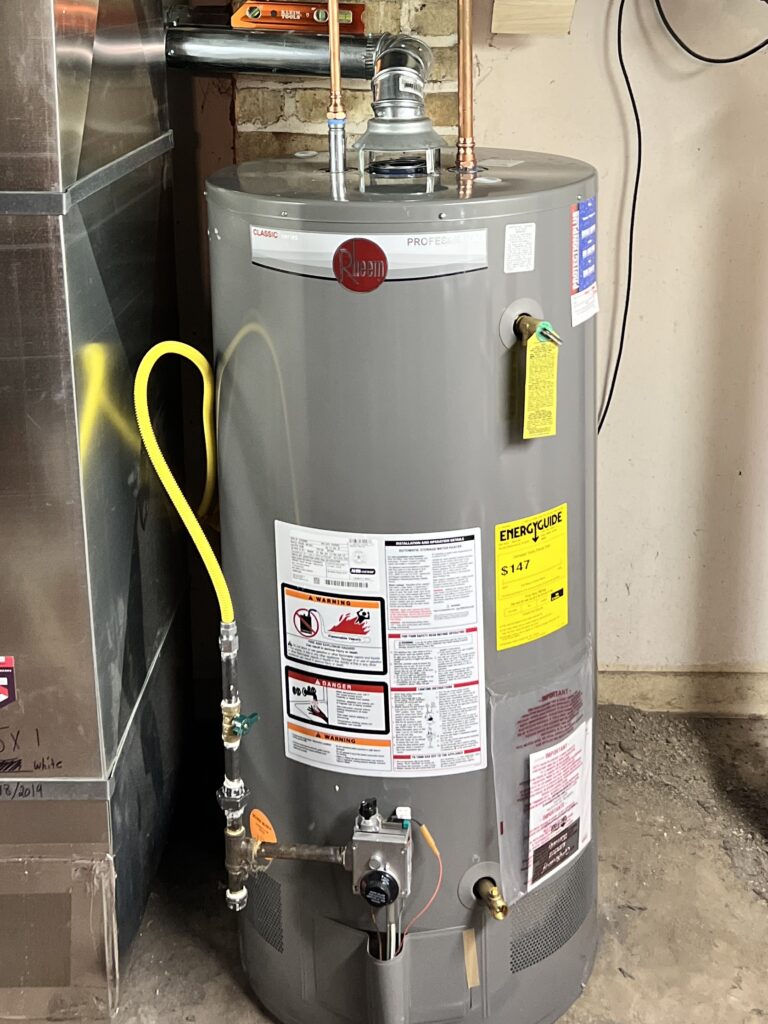

Blog
The Importance of Apprenticeships For Younger Generations
Deciding on a Career Path in the Skilled Trades After High School
Deciding on a career after high school — we’ve all been there, but for most of us, it’s rarely easy. Many young adults at this stage in their lives consider a four-year degree but ask themselves, “Is four years of college right for me? Can I really afford it?”
On the flip side, there are those with a passion for skilled trade jobs that offer hands-on training and experience that starts right away. But questions arise on this path as well: “Are skilled trade jobs worth it? Do I really have what it takes?”
If you’re truly passionate about getting hands-on work experience with continued on-the-job training to hone your skills, pursuing a career in the skilled trades can be incredibly rewarding. Starting out through trade apprenticeship programs in Des Moines, Iowa allows young professionals to develop and learn at the right pace while earning money and gaining invaluable experience. Follow along with Bell Brothers Heating, Cooling, & Plumbing for more information.
Why Apprenticeships Matter in Des Moines, Iowa
In Des Moines, Iowa, apprenticeship programs play a vital role in helping the next generation of HVAC and plumbing professionals get started in rewarding, lifelong careers. Skilled trades are the backbone of the local community — keeping homes comfortable, businesses operational, and job opportunities strong across Central Iowa.
At Bell Brothers, our HVAC apprenticeship program gives students the chance to work alongside experienced technicians, gaining hands-on training while building the professionalism and confidence needed to thrive in the industry.
Inside the Bell Brothers Apprenticeship Program
To give you an inside scoop, we sat down with two of our own to gain their perspective on the value of our apprenticeship program here at Bell Brothers in Des Moines:
- Alex, a student entering his third year in the program
- John, the director of education for the program and also a teacher
Learning the Trade: Alex’s Experience
Q: Alex, what’s the biggest thing you’ve learned in our apprenticeship program?
A: “Electrical,” he says without hesitation. “Working with electricity and reading wire diagrams — that was the biggest hurdle in the beginning. I still have a lot to learn, but that’s been the biggest asset so far.”
Inspired by his dad — a carpenter of 40 years — Alex decided to leave a job working in a body shop to further his career in the skilled trades. His mechanical background and passion for working on cars landed him here at Bell Brothers.
The apprenticeship program has given him a lot of hands-on experience and training to use for his career aspirations. But it goes beyond his career:
“My whole goal in life is to be self-sufficient,” he added. “This is just another step in that. I can change a water heater in my house. I can do my air and my furnace — I know those skills. If an outlet in my house needs to be replaced, I can do it. Not incurring a lot of debt is a benefit, but for me, being self-sufficient is what I like.”
Looking Ahead: Alex’s Next Steps
While Alex is gaining experience in both commercial and residential work through his apprenticeship in Des Moines, his long-term goal is to become a commercial journeyman.
“I have a long way to go, but that’s where I see myself wanting to go in the long term,” he says. “This program is a great way to get there.”
A Day in the Life of an Apprentice
Q: John, what does a day in the life of a technician going through the program look like?
A: “Our apprenticeship program consists of night classes that start at 5 p.m. and run until 9 p.m., one night a week from September through April,” he says. “For customer calls, it depends on your experience coming in, but you’re usually spending a few months in a helper role to get educated and up to speed on the equipment.”
During this time, students hone their skill sets, grow more comfortable on the job, and build the confidence to ensure customers feel secure in their work.
“We love to see the light bulb go off with these students,” John added. “Yes, we’re also paid, but the rewarding part is seeing that guy who started where Alex was and watching the light bulbs start going off — watching him or her become a budding service tech.”
Building a Foundation for a Successful HVAC Career
The goal of this program is to teach the value of responsibility and professionalism. While some students come in with prior experience, others are learning everything from the ground up.
The program emphasizes the importance of showing up on time, maintaining a strong work ethic, and doing the little things that help students grow — both as individuals and as part of the Bell Brothers team.
Are Trade Jobs Worth It?
Q: What would you say to someone who came up to you and asked, “I’m thinking about doing this. What do you think — are trade jobs worth it?”
John: “I would tell them to go for it! There’s a high demand for skilled trade workers, which means there are a lot of great job opportunities and long-term job security. Starting out, you’ll earn money while taking classes. Once you earn your Journeyman License, your salary increases as you gain experience.”
Alex: “It’s labor-intensive, but the reward is worth it. For me, it’s mentally, ‘Can you do it?’ That’s what it comes down to. I’d tell them to weigh their options, think about where they want to go, and if the opportunity feels right — do it!”
These are primarily independent careers, and self-motivated, get-it-done individuals thrive in this type of work environment. You have to want to work and want to be successful. If you have that drive, we’ll do our part to get you there — that’s what apprenticeship programs are all about.
Learn More About Apprenticeship Opportunities in Des Moines
If you’re interested, learn more about our HVAC Apprenticeship Training Program and the Skilled Trades Alliance we formed with other local partners. Both have been tremendously successful at showing a new generation of skilled trade workers the importance of apprenticeship programs and just how rewarding these careers can be.








